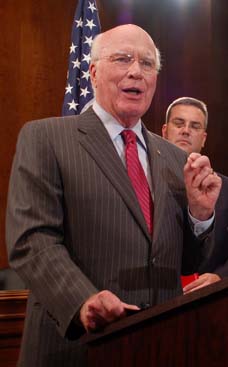
From 1963 to 1965 I served as a Peace Corps volunteer in northern Nigeria. It was a hopeful time, before ethnic violence took the lives of most southern Nigerians who lived where I was posted, before the Biafran War, before oil, before military coups. My American colleagues and I-young, idealistic, and ill-informed-could never have imagined what Nigeria would be like today or how the political and economic trajectories of much of sub-Saharan Africa would look over the last fifty years. My Nigerian colleagues could not have predicted any better. In those years, modernization theory dominated expectations about development among economists, political scientists, and the foreign assistance community. The central idea was that closing the financing gap caused by insufficient savings in the developing world would spur growth. The role of foreign aid was to provide the right amount of capital. Capital would bring growth, and growth would bring urbanization, higher levels of education, a larger middle class, and democratization. Get on the escalator of history in Lagos in 1960, and get off at some place that looks like Copenhagen in 2009. Sadly Lagos today does not look anything like Copenhagen. Modernization theory correctly described an empirical relationship between development and democracy-Collier points to $2,700 per capita as the tipping point between elections associated with more or less violence-but in countries of the "bottom billion," growth and effective democracy are both hostage, as Collier also argues, to accountability and security. At least two alternatives now describe the trajectory of state development more realistically than modernization theory, and neither suggests that good things will happen in the states of the bottom billion without a dramatic change in the role of external actors. Collier draws on both of these theories in his essay.
Nigeria RPCV Stephen D. Krasner writes: At least two alternatives now describe the trajectory of state development more realistically than modernization theory, and neither suggests that good things will happen in the states of the bottom billion without a dramatic change in the role of external actors
‘If third parties play a more decisive role, there is some hope'
Stephen D. Krasner
This article is part of Development in Dangerous Places, a forum on global poverty and intervention.
From 1963 to 1965 I served as a Peace Corps volunteer in northern Nigeria. It was a hopeful time, before ethnic violence took the lives of most southern Nigerians who lived where I was posted, before the Biafran War, before oil, before military coups. My American colleagues and I-young, idealistic, and ill-informed-could never have imagined what Nigeria would be like today or how the political and economic trajectories of much of sub-Saharan Africa would look over the last fifty years. My Nigerian colleagues could not have predicted any better.
In those years, modernization theory dominated expectations about development among economists, political scientists, and the foreign assistance community. The central idea was that closing the financing gap caused by insufficient savings in the developing world would spur growth. The role of foreign aid was to provide the right amount of capital. Capital would bring growth, and growth would bring urbanization, higher levels of education, a larger middle class, and democratization. Get on the escalator of history in Lagos in 1960, and get off at some place that looks like Copenhagen in 2009. Sadly Lagos today does not look anything like Copenhagen.
Modernization theory correctly described an empirical relationship between development and democracy-Collier points to $2,700 per capita as the tipping point between elections associated with more or less violence-but in countries of the "bottom billion," growth and effective democracy are both hostage, as Collier also argues, to accountability and security.
At least two alternatives now describe the trajectory of state development more realistically than modernization theory, and neither suggests that good things will happen in the states of the bottom billion without a dramatic change in the role of external actors. Collier draws on both of these theories in his essay.
The first, which focuses on the importance of institutional capacity, was expressed with great force in Samuel Huntington's devastating 1968 critique of modernization theory, Political Order in Changing Societies. Huntington argued that political mobilization- resulting from urbanization, literacy, and industrialization-would lead to political decay rather than political development unless accompanied by political institutionalization, especially the development of executive power. Things do not necessarily get better with more capital, and they will get worse without state institutions powerful enough to provide order. Get on the escalator at Lagos in 1960, and get off the escalator in Lagos in 2009.
Historically the most common path to greater institutional capacity has been by way of external threat. Charles Tilly famously argued that war makes the state and the state makes war. In Europe, as Collier notes, the failure to enhance institutional capacity in the face of external enemies meant state death. Prussia/Germany survived; Saxony, the Rhineland Palatinate, Bavaria, Hesse, and the scores of other German principalities did not. The Meiji Restoration in 1868 radically altered Japanese domestic institutions and transformed Japan from a potential victim of Western imperialism to the first Asian state to defeat a Western power militarily. In contrast China failed to enhance state capacity and suffered more than a century of external occupation and internal unrest.
Despite being too weak to defend themselves, however, states of the bottom billion face few external challenges: no one is interested in invading them. Their leaders may fear coups, but they do not fear conquest, exile, or death at the hands of foreign actors. And, as Collier argues, the prospect of a coup encourages leaders to weaken and divide the state's security apparatus, rather than strengthen and consolidate it. Political leaders in the bottom billion are thus better off eviscerating state capacity than expanding it.
A second alternative to modernization theory focuses on the self-interested motivations of political elites and the possibility of deals that could constrain state power and make officials more accountable to their constituents. This approach, too, offers little promise for the bottom billion. Political leaders in these states have every reason to horde power, especially when there are natural resources that can be looted. Citizens are rarely in a position to make credible threats of revolt, which might encourage leaders to create more responsive institutions. But, if third parties play a more decisive role-for example, by conditioning aid on good governance-there is some hope. The Millennium Challenge Account inaugurated by the United States in 2004 does exactly that; however, it accounts for only about 10 percent of U.S. foreign aid. Moreover, no other major donor has followed suit.
If external threats are virtually nonexistent, and if the internal and external incentives to improve domestic authority and political accountability in the states of the bottom billion are weak or inverted, what is to be done? The only answer-and the one that Collier and others have come to reluctantly-is for external actors to exercise authoritative control over some state functions. Ideally, the assumption of executive authority results from a contractual agreement entered into voluntarily by all relevant parties. One example is the Australian-led Regional Assistance Mission to Solomon Islands, which has assumed responsibility for the police, the judiciary, and finance. Another is the contract the Marshall Islands has made with the United States for the provision of its security. Yet another is the Governance and Economic Management Assistance Program in Liberia, where donor-appointed representatives exercise executive authority in key ministries. Contracts have also been signed (in many cases with private multinationals) for specific functions such as customs collection and health care. The OECD has established an advisory unit, the Partnership for Democratic Governance, which facilitates the contracting-out of government services.
Authoritative control by external actors established through voluntary agreements conforms with conventional notions of international legal sovereignty; states can voluntarily contract for anything, including services that compromise their own domestic autonomy. But when external actors exercise control as a result of imposition or coercion, the situation is much more challenging, as Iraq and Afghanistan have demonstrated. Both violate international legal sovereignty and traditions of national sovereignty, which regard as illegitimate the rule of any external authority in a territory (even through consent). Nevertheless, I agree with Collier that in some cases there may be no better alternative.
Sovereign statehood, an institution that developed over several hundred years in Europe, was grafted onto the states of the bottom billion, particularly during the decolonization process of the mid-twentieth century. The institutions and obligations of these new states did not emerge from an indigenous historical process, but rather were simply copied from the practices of developed states. So, for example, every state had to have the equivalent of a national science foundation, even states with no scientists.
The intentions of the powerful, developed states were not malign; sovereign statehood was the most obvious institutional form for political entities emerging from colonization. But the experiment in exporting institutions from the developed and industrialized parts of the world to the most impoverished has failed with tragic consequences for the bottom billion. Alternatives that incorporate external actors with executive authority, even if the formal trappings of sovereignty are never challenged, offer a way out of the morass.













